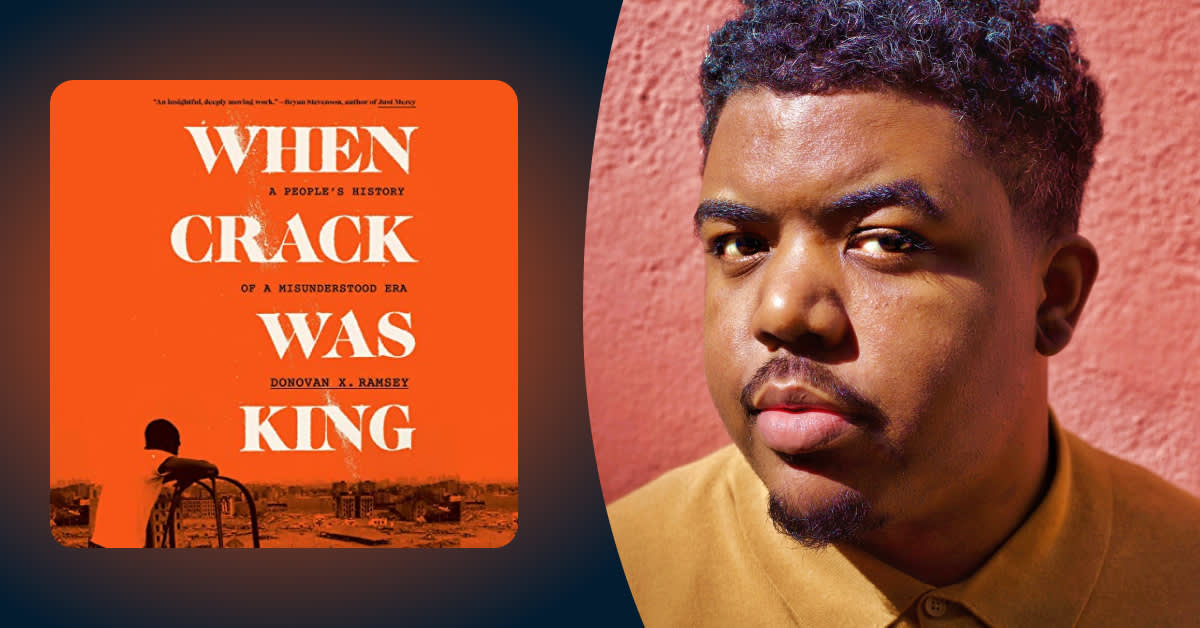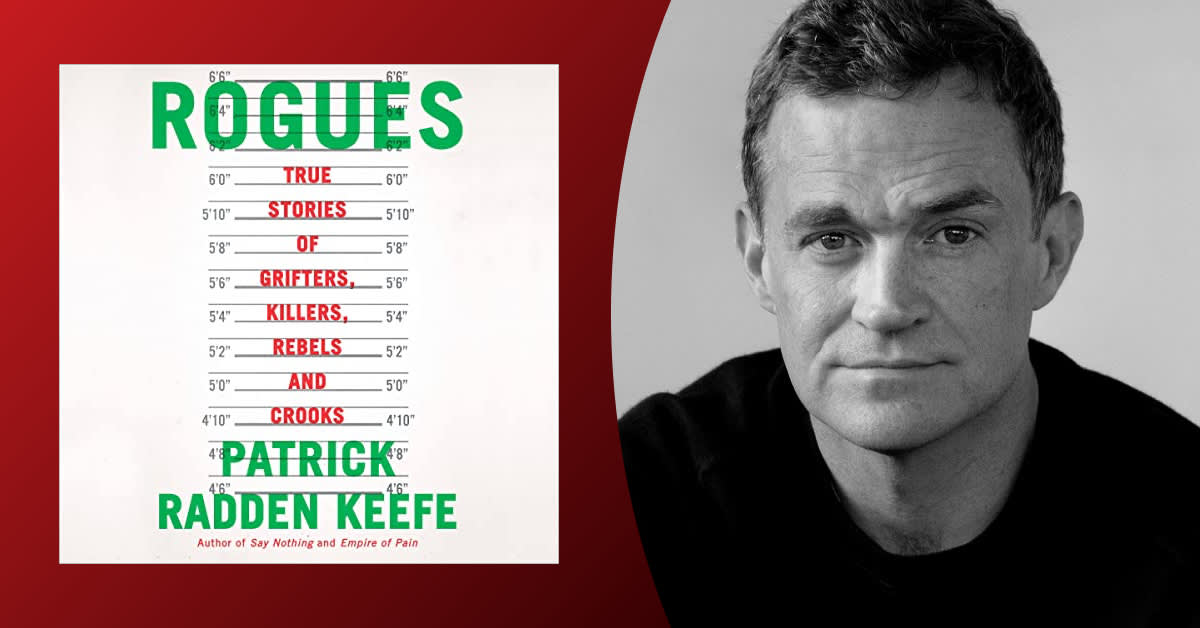Journalist Donovan X. Ramsey debuts a full-length work of nonfiction with his self-narrated history of the war on drugs, When Crack Was King. Told in mosaic style through the profiles and perspectives of four individuals who survived the era, When Crack Was King is both a necessary corrective to an overlooked piece of American history and the debut of a nonfiction talent to watch.
Audible: How did you get interested in writing about the crack epidemic? When did you know this was a book and not a shorter piece of journalism?
Donovan X. Ramsey: Growing up in a neighborhood deeply affected by the crack era, I witnessed firsthand the devastating consequences it had on individuals, families, and communities. This experience fueled my desire to delve deeper into the subject and shed light on the complexities surrounding it. I realized the vast scope of the crack epidemic's impact warranted a more comprehensive exploration.
When Crack Was King is a compelling mix of history and memoir—alongside the political and social upheavals leading up to and surrounding the crack era, you profile four individuals who give the narrative a deeply human, kaleidoscopic dimension. How did you choose these four, and how do you see their stories playing off each other?
Finding Lennie, Elgin, Kurt, and Shawn was a meticulous process. I sought out individuals who represented different perspectives and experiences during the crack era. Some were directly impacted by addiction, while others were involved in the drug trade or affected by the harsh criminal justice policies of the time. Their stories play off each other by showcasing the interconnectedness of their lives within the larger social and political context. By intertwining their narratives, the book reveals the complex web of circumstances and choices that shaped the crack epidemic. Through their diverse experiences, readers gain a comprehensive understanding of the era's impact on both a personal and societal level.
“Throughout my research, I was stunned again and again by the extent to which false narratives and misinformation influenced public perception of the crack epidemic.”
As you demystify the false narratives, junk science, and cultural mythology around crack in your book, what did you learn that personally surprised you? What do you ultimately hope listeners come away with?
Throughout my research, I was stunned again and again by the extent to which false narratives and misinformation influenced public perception of the crack epidemic. The media portrayal of crack users and the "crack baby" myth, for example, perpetuated harmful stereotypes that stigmatized entire communities.
Simultaneously, I also gained a deeper appreciation for the resilience and strength of individuals and communities affected by the crack epidemic. Despite facing immense challenges, many found ways to survive and rebuild their lives. It was a testament to the human spirit and the power of community support.
Ultimately, I hope people come away from the book with a nuanced understanding of the crack era—one that goes beyond sensationalism and recognizes the underlying social, political, and economic factors at play. By challenging prevailing narratives, my goal is to foster empathy and a deeper appreciation for the individuals and communities impacted by the crack epidemic.
You narrate your own work—congrats! Can you share any highlights from your experience recording and what your favorite part was of the audiobook creation process?
Recording an audiobook is a deceptively difficult but uniquely fulfilling experience. I’m so happy I did it. What I loved most about the process was being able to infuse my own emotion about the narrative into the work—that’s not something journalists get to do every day, and I found that considering the emotional meaning of the text made the stories more powerful to me. I also really enjoyed reading alongside an awesome producer and engineer—shoutout to Shereen Lani Younes and Patrick Fitzgerald.
“Despite facing immense challenges, many found ways to survive and rebuild their lives. It was a testament to the human spirit and the power of community support.”
You highlight the acclaimed nonfiction works The Condemnation of Blackness, Stamped from the Beginning, and The New Jim Crow, which articulated and exposed how the US criminal justice system controls Black communities through the war on drugs. Are there other books or podcasts that you’d point listeners to for further perspectives on the crack era?
The crack era is a complex and multifaceted subject, and there are several other books and podcasts available that provide valuable perspectives on the topic. After listening to When Crack Was King, listeners should check out High Price: A Neuroscientist's Journey of Self-Discovery That Challenges Everything You Know About Drugs and Society by Dr. Carl Hart and Survival Math: Notes on an All-American Family by Mitchell S. Jackson. In terms of podcasts, I highly recommend 100:1 The Crack Legacy.





